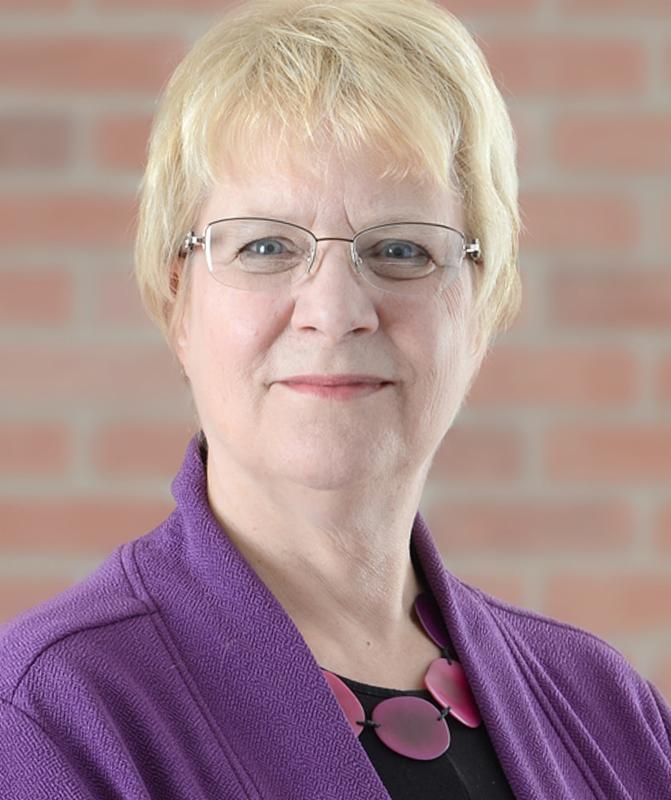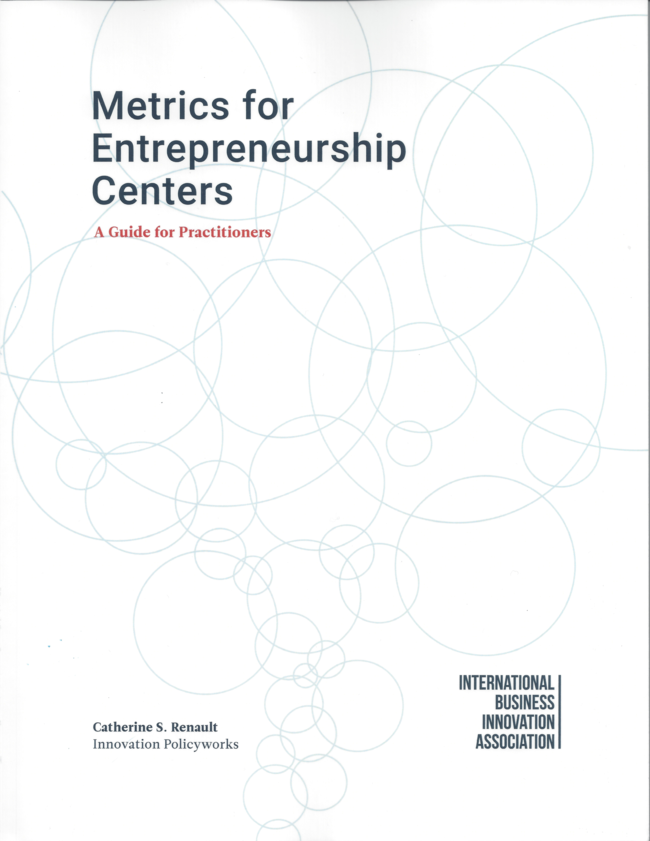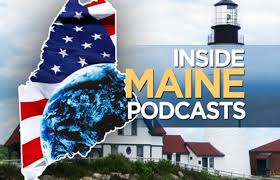|
|
|
Notes from Innovation Policyworks

I'm working on a series of case studies for a client on organizations that are a catalyst or gateway or intermediary for entrepreneurs, resources and programs. What's striking is how unique each is, dependent upon the circumstances in each place. It seems to matter what partners are already there and involved in entrepreneurship, what funding is available and with what strings, and the local culture and "little p" politics (I mean relationships, not partisan politics).
The constant in all of the examples is that the needs of entrepreneurs are generally well-known. They need help with improving and accelerating the growth of their businesses, including access capital, knowledge and services. In the places where entrepreneurs are doing well, the communities are tight, with lots of events and other opportunities for networking and "happy collisions" where one and one can equal three. These can be disguised as social events, but really the objective is for entrepreneurs, service providers, researchers, students, and potential employees to get to know each other better. After all, as a friend of mine used to say, "People do business with people they know and like."
Cathy
|
Advice from Three Mayors: Grow Your Own Entrepreneurs
The former mayors of Albuquerque, Minneapolis and Little Rock, AR recently teamed up to write an editorial critical of economic development strategies that focus on the use of tax and other incentives to lure new employers. Instead, these mayors say, "Entrepreneurship is key to helping lift back up our local economies."
They point to the Kauffman Foundation's work supporting mayors through its Annual Conference on Entrepreneurship, held in May in Kansas City. The mayors go on to say, "So many communities have learned...that they already possess the tool that matters most to be successful - people. Local people are the most powerful economic development tool we can invest in. If we can put the level of energy and focus that the Amazon pursuit evoked into growing our own job creators, the possibilities are greater than we can imagine." Read the entire piece
HERE.
|
How to Attract Startups and Tech Companies to a City Without Tax Breaks
Three areas of focus where civic and business leaders can leverage underutilized community resources and drive economic growth are outlined in this Harvard Business Review article:
1.
Invest in institutions of higher education as engines of innovation and job creation, especially international talent.
2.
Foster diverse communities, utilizing untapped talent to drive higher economic returns and greater equity, and
3.
Build basic infrastructure to ensure future growth and retain a highly-trained workforce.
The article goes on to extol the virtues of public-private partnerships where business leaders join civic leaders to invest in a transition to an innovation economy.
|
The stranglehold that metropolitan areas have held over entrepreneurial support organizations is slowly relinquishing its grip as suburban areas and rural areas increasingly adopt strategies to growth their economies using innovation and entrepreneurship.
But, these strategies are unique to each community, including a new trend toward the reuse of old retail spaces, including malls, as co-working and incubator centers. Industrious, a co-working company, is opening co-working spaces in New Jersey and California, following amazing success in Scottsdale, AZ. Other companies have opened co-working locations at Atlanta's Buckhead retail center. Putting offices inside shopping centers leverages conventional wisdom that workers want to be near amenities like coffee, food or fitness centers. And, most malls offer free parking and locations nearer to users' homes. Read
MORE.
|
Interviews with more than 200 founders and executives at fast-growing companies show not only that the "startup soul" is real, but that it has three elements: the reason for the company's being, its customer connection, and its employees' experience.
A startup's soul is intangible, but it inspires people to contribute their talent, money and enthusiasm. While the spirit remains, startups remain agile and innovative. But the challenge is to keep the soul while growing. This is the conclusion of Harvard Business School Professor Ranjay Gulati, documented in his new Harvard Business Reviewarticle entitled, "The Soul of a Start-up." Highly recommended. Read it
HERE.
|
Building the Workforce of the Future
The Center for Universal Education (CUE) and the Future of the Middle Class Initiative at Brookings held a symposium in May to talk about building the workforce of the future.
There was a panel of distinguished scholars and researchers in workforce development. The themes from the sessions included:
1.
Too many Americans exist in environments that thwart rather than support their success.
2.
There is no one size fits all approach to economic growth.
3.
Exposing children to the world of work at an early age is important.
4.
Low-wage workers, particularly those without a college degree, are at most risk of being left behind in today's economy.
5.
Investing in the tech talent pipeline can have big rewards.
Links to the underlying research are HERE.
|
It's happening. For the first time, non-Hispanic white residents now make up less than half (49.9%) of the US' under 15 age population, according to the latest US Census Bureau estimates.
This highlights the increasing racial diversity of the nation's population which is percolating from the bottom up as the white majority population ages. Note that this trend is not the same in all states. Fourteen states plus the District of Columbia have a minority white population under age 15, including California, Texas, Florida and New York. Another 11 states have racial/ethnic minorities that comprise at least 40% of their under 15 populations. In all states, diversity has increased since 2010. For detailed information, click
HERE.
|
|
Charlottesville, VA Matching Program
The City of Charlottesville Office of Economic Development and the Charlottesville Economic Development Authority have launched a program to provide matching funds to companies receiving grants from the federal SBIR and STTR programs as well as the state's Commonwealth Research and Commercialization Fund (CRCF) programs. More HERE.
This is a new add-on to an existing program that matches grants from the Virginia Jobs Investment Program (VJIP). (Our GoVirginia Region 9 strategy from 2017 suggested that the Region, which includes Charlottesville, support the state's Investment Tax Credit as a way to increase access to capital in the region. Montgomery County, MD, is another place where local government is matching grants for the SBIR program.)
|
|
| |
|
"...there is no such thing as a low-tech industry. There are only low-tech companies-that is, companies that fail to use world-class technology and practices to enhance productivity and innovation."
Michael E. Porter
|
|
New to Innovation, Entrepreneurship or Economic Development?
Want to learn more about what programs work and why?
Five Strategies for Economic Development that enhance innovation and entrepreneurship.
Click
HERE for a complimentary PDF that outlines the whys and wherefores!
|
|
Creating, Building and Supporting Entrepreneurial Ecosystems: What You Can Do
Now available on Amazon Kindle!
Every community, region or state is unique. It has its own demographics, geography, history, culture, business and industry mix, assets and politics. To figure out how to create, building or grow an entrepreneurial ecosystem requires an understanding of both the framework of innovation and entrepreneurship-based economic development, and a replicable, reliable process for linking that framework to your situation.
This short book is both a quick introduction to the framework, and an overview of the process, with examples from around the US to give you inspiration.
I hope you enjoy it! If you do, please write a review! Get it HERE.
|
Metrics for Entrepreneurship Programs
 Have you been wondering how to convince your stakeholders that your program is performing well? My book on evaluating entrepreneurial programs, written for the International Business Innovation Association (iNBIA), is available on its website. The basics apply to any economic development program. Check it out HERE. Have you been wondering how to convince your stakeholders that your program is performing well? My book on evaluating entrepreneurial programs, written for the International Business Innovation Association (iNBIA), is available on its website. The basics apply to any economic development program. Check it out HERE.
|
|
Hear Cathy on WGAN's Inside Maine with Marty Grohman
 I had the most fun talking with Marty Grohman, serial entrepreneur, legislator, House candidate and now Executive Director of E2Tech. He's just as engaging in person as he is on the radio! Listen HERE. I had the most fun talking with Marty Grohman, serial entrepreneur, legislator, House candidate and now Executive Director of E2Tech. He's just as engaging in person as he is on the radio! Listen HERE.
|
|
|